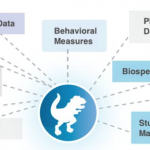Availability: Free Download
Comparable: Zotero, EndNote
 Mendeley is a free reference manager and social network that helps users organize their research, collaborate with others, and discover new research. Search and sort references, documents and notes in one place. Users can read, annotate and add sticky notes to PDFs.
Mendeley is a free reference manager and social network that helps users organize their research, collaborate with others, and discover new research. Search and sort references, documents and notes in one place. Users can read, annotate and add sticky notes to PDFs.
Mendeley generates citations and bibliographies in the desired style and is compatible with Microsoft Word, LibreOffice and BibTeX. Reading lists, references or full text articles can be shared either publicly or privately. Groups can be created to work on research assignments, share feedback, and write papers. Published research can be showcased with colleagues, peers, and classmates.
The program combines Mendeley Desktop, a PDF and reference management application with Mendeley Web, an online social network for researchers. Users can store all of their research in one place and access across devices. Mendeley requires the user to store all basic citation data on its servers and storing copies of documents is at the user’s discretion.
Mendeley is available for Mac, Windows, and Linux and provides 2GB of free online storage to automatically back up and synchronize the library across desktop, web and mobile.

 Availability:
Availability: